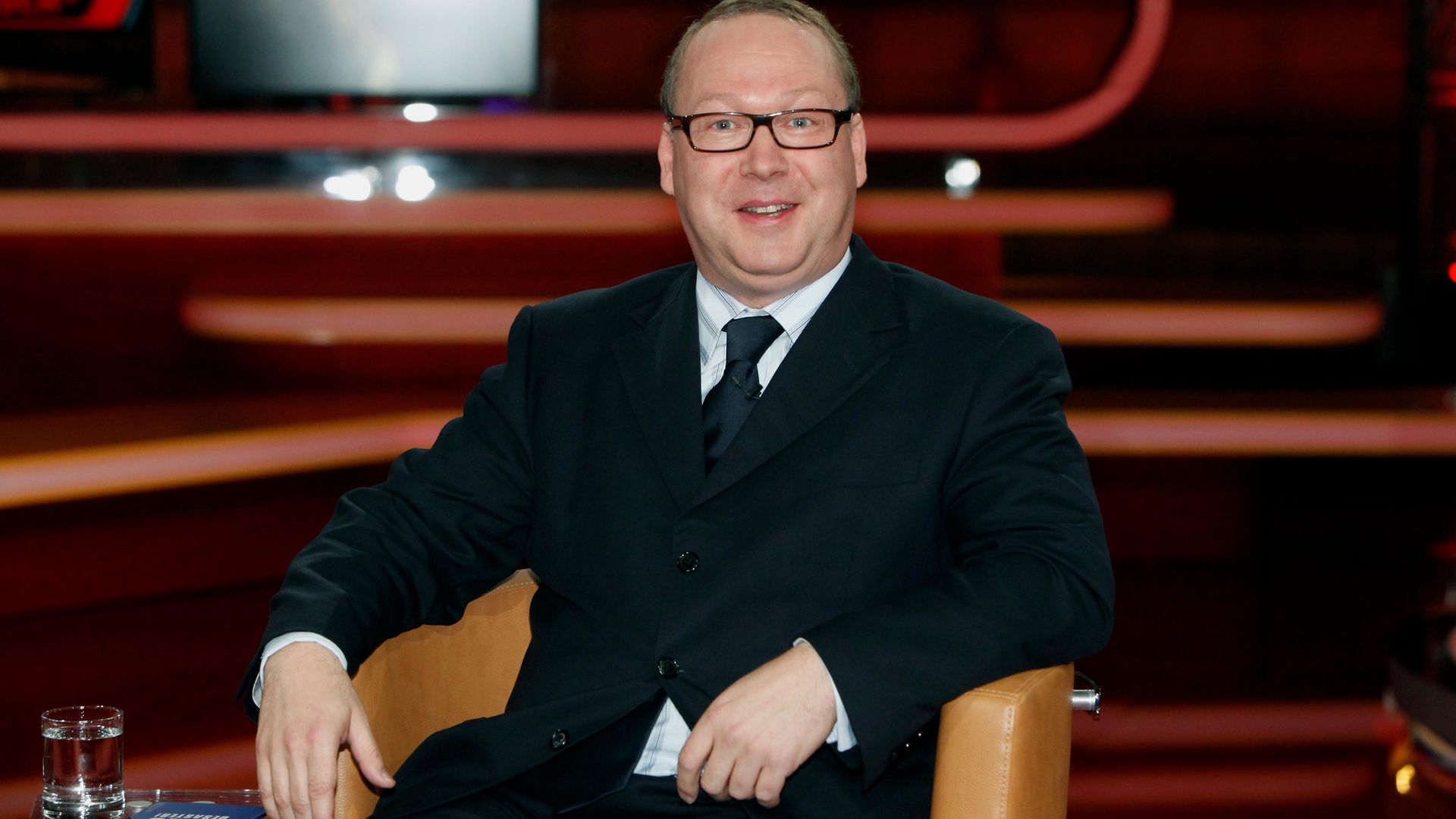
As Angela Merkel departs the scene, her party faces an insurgent effort to move it much further to the right and to reverse her centrist approach. Will it succeed?
Two years ago German politician Walter Lübcke was assassinated with a close range shot to his head, as he stood on his front porch.
Lübcke, a member of Angela Merkel’s party, had been a vocal supporter of the chancellor’s migration policy, telling an audience at a local town hall meeting that helping refugees was in line with Germany’s cultural values. “Whoever does not support these values can leave this country any time, if he doesn’t agree,” he added. “That is every German’s right.”
Lübcke’s comments made national headlines and attracted the ire of neo-Nazis. As they launched the hunt for his killer, police suspected it provided the motive for his killing.
Max Otte, another member of Merkel’s Christian Democratic Union, or CDU, didn’t agree. “It all looks as though the murderer is some underprivileged individual,” he tweeted shortly after Lübcke’s murder. “But the media is already stirring up hatred against the ‘right wing scene’.”
In the end, Otte turned out to be wrong. Stephan Ernst, an extremist with links to the the German branch of the neo-Nazi terrorist group Combat 18 was later convicted of the killing.
But this would not be the first or last time that Otte would defend the “right wing scene”. Despite belonging to the CDU, he was already close to the Alternative for Germany, or AfD, party. In 2017, he even admitted he wanted to vote for them.
Some members of the AfD – an anti-immigrant, eurosceptic party founded in 2013 – could simply be classified as very conservative. Others are under observation by Germany’s version of the FBI because they’re suspected of being close to violent neo-Nazis who would like to overthrow the government. And why does all this matter now? Because last week, Otte was elected head of the Werte Union, or the Union for Values.
The Werte Union, founded in 2017, advocates for the fundamental, conservative values that the CDU is supposedly based upon. A small but increasingly influential group, they want to bring the party’s policies back from the centre they argue Merkel has dragged them to over the course of her chancellorship, through her ending of nuclear power and compulsory military service, to the opening of German borders to asylum seekers.
A recent article in current affairs magazine Der Spiegel spelled out the problem: “Enemy takeover,” it warned. “In many places, liberal Christian Democrats are being punished by the party’s grassroots and replaced by conservative nobodies. The party now fears a German Tea Party movement.”
The US Tea Party was the hardline conservative movement that wreaked disproportionate havoc within the US’ Republican party, by pushing it to the right and driving out its moderates. It is widely seen as paving the way for Donald Trump’s presidency. There have also been comparisons with the radical right in the UK’s Conservative party, a relatively small faction which helped bring about Brexit.
“If you give these people your finger, they’ll take your entire hand,” Elmar Brok, a member of the European parliament and the CDU, cautioned in an interview. “It’s like a cancerous growth. You have to fight ruthlessly to ensure that this cancerous growth cannot creep into the [CDU] party.”
The Werte Union acts as a ‘hinge’ between the CDU and the AfD, a senior CDU member complained. And this is problematic because, as Constanze Stelzenmüller, a senior fellow at the Brookings Institute, explained: “At federal level, the AfD is stuck at 12% in the polls… Its only path to national power is a co-optation of the CDU from within.”
Cooperation with far right parties has long been a taboo in Germany, and last year Merkel fired a minister who had praised the election of a candidate in Thuringia who was supported by the AfD. But at lower levels of German politics there have been synergies between the CDU and AfD, and there are fears these will manifest at higher levels too.
And it is not just the AfD that elements of the CDU’s Tea Party are brushing up against. It has emerged that Otte’s deputy at the Werte Union, Klaus Dageförde – another CDU member – was involved with an outlawed neo-Nazi group, the Action Front of National Socialists, in the 1980s. And there’s Hans-Georg Maassen, a CDU member and former head of a local spy agency.
He is a nationally-recognised flag bearer for conservative values, but has been accused of holding, in the words of a CDU colleague, “a worldview that is an unsavoury melange of bitterness, populism, tinfoil hats and self-radicalisation that is both remarkable and concerning for a former top official”. During one party meeting, Maassen told his audience: “I didn’t join the CDU 30 years ago so that 1.8 million Arabs would come to Germany today.”
Maassen actually gave up his Werte Union membership after Otte was elected – most likely because he is running for office for CDU in Thuringia in the September elections. The CDU and AfD have been the most popular parties in his area and a victory there would be a real demonstration of Maassen’s argument that the CDU needs to move rightwards.
And that is the ultimate aim of Germany’s Tea Party. After all, the Werte Union remains tiny, with only 4,000 registered members. Around three-quarters of them are members of the CDU or its Bavarian sister party, the Christian Social Union, or CSU, which, by comparison have around 406,000 and 139,000 members respectively.
The Werte Union is not an official branch of the CDU either, only an association, as leader Armin Laschet, has been at great pains to point out. “They have nothing to do with the CDU,” Laschet insisted in a recent interview, emphasising that he didn’t plan to have much to do with Otte either.
Still, its power may be in its influence on the CDU’s future direction, especially now Merkel is departing the scene. In April, the Werte Union boasted that a survey it commissioned showed 77% of CDU voters would like the party to pay more attention to its positions.
The Werte Union presents a challenge to those in the CDU who would like to resist its efforts to shift it rightwards. For a start, the CDU is not as popular as it once was. In the last two federal elections, it was more than 12 points ahead of the nearest competition. This time the gap is much, much tighter.
The idea that the CDU needs to move away from its centrist position, to distance itself from the left, might be tempting to some in the party, even if they do not want it to go as far as the Werte Union envisage.
But there are still many who think that the CDU’s centre will hold. Frank Decker, a professor of political science at the Rhenish Friedrich Wilhelm University of Bonn, says the way Germany’s electoral system is set up helps to buttress the country’s centrist leadership against the radical right.
“The difference between us and the UK or the USA, is that we have proportional representation instead of a majoritarian system,” he says. “In a majoritarian system, the Tea Party movements are those that appear inside the bigger parties, like the Conservatives or the Republican party.”
In Germany, the radical right already has a home, he argues, and it’s with the AfD, in opposition. Then there’s also the issue of the Greens’ growing popularity. The party look set to emerge from September’s election as Germany’s second most popular party. The CDU will need to consider forming a coalition with them, if it doesn’t want to be left out of government altogether.
So if the CDU goes further right, they risk two things: alienating their own centrist supporters, who might then vote for the Social Democrats or Greens and alienating potential coalition partner parties, like the Greens. In Germany, no single party is big enough to form a government on its own anymore.
“So the CDU can’t take on any position that makes a coalition with the Greens impossible,” Decker explains. He suspects the CDU will likely go further left on environmental policies, move right on business-friendly programmes and remain centrist on other questions. “But it’s going to be a very tense arc that they have to draw to make such a coalition workable,” he concedes. The activities of an increasingly radicalised Werte Union are going to make that task all the more challenging.
What do you think? Have your say on this and more by emailing letters@theneweuropean.co.uk
Warning: Illegal string offset 'link_id' in /mnt/storage/stage/www/wp-includes/bookmark.php on line 357
Notice: Trying to get property 'link_id' of non-object in /mnt/storage/stage/www/wp-includes/bookmark.php on line 37







